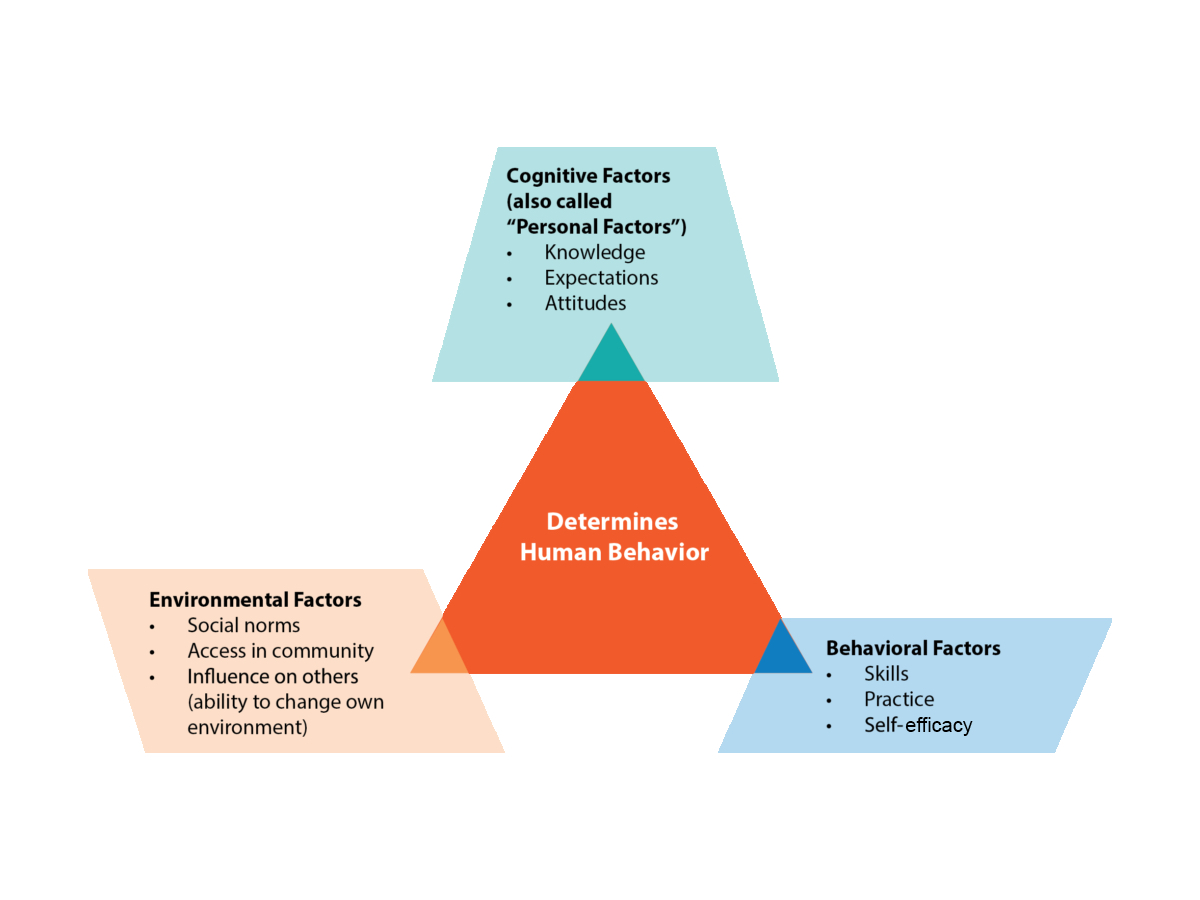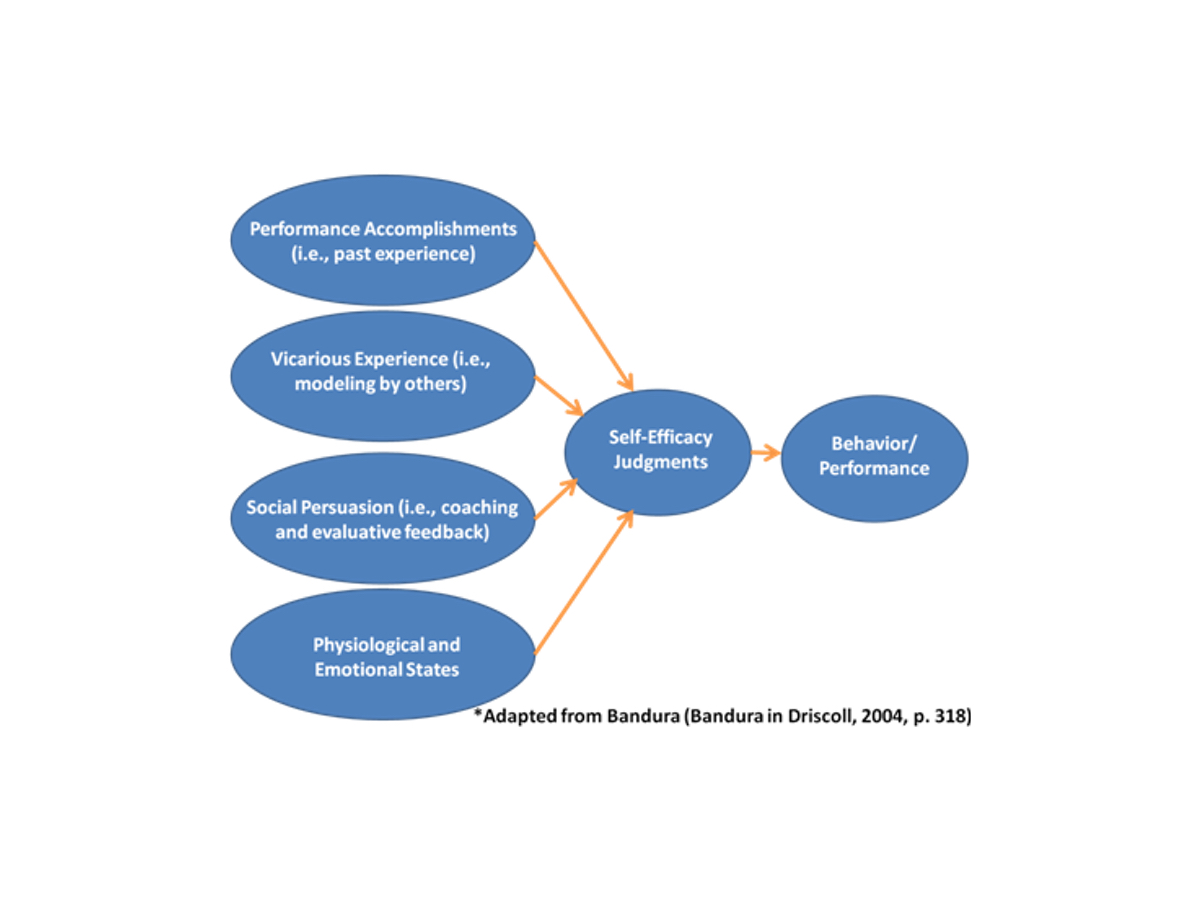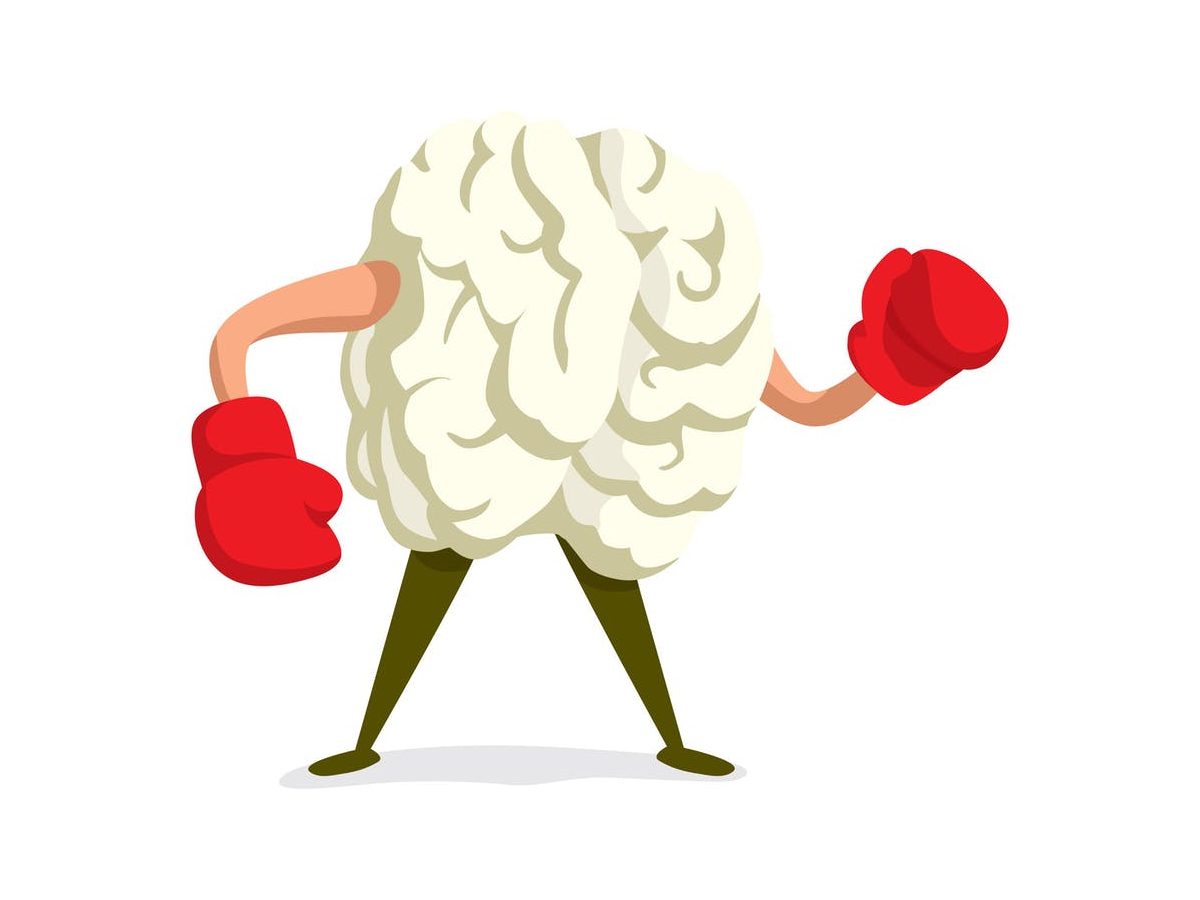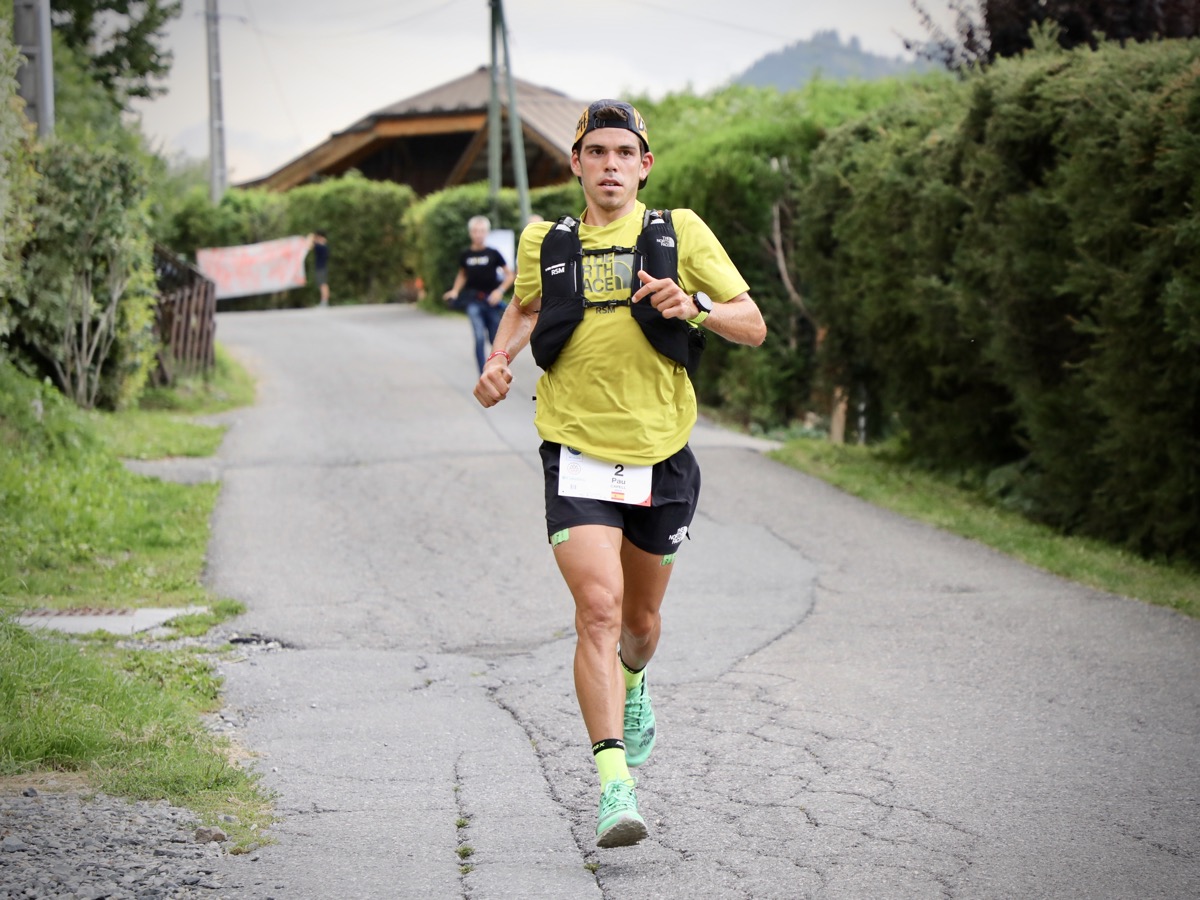I’d like to introduce you to your new running superpower: self-efficacy. What is self-efficacy? It’s the belief in our abilities to accomplish a specific task.
Ultrarunning is hard, both physiologically and psychologically. I don’t really need to tell you that—you’re here for the challenge. While we can’t discount the physiological demands of our sport, we ultrarunners also love to say things like, “Ultrarunning is 80% mental,” to help emphasize how our sport gets to our minds as much as our bodies.
Despite those mental challenges, we can all probably think of a moment late in a long run or race where we very simply knew we’d get it done. And that right there, the belief in our ability to get through whatever is ahead, is an example of strong self-efficacy. It turns out that its presence or absence in us affects how we perform in ultra-endurance sports! So let’s dive into psychology to learn more about what self-efficacy is and how to make it our running superpower.
Social Cognitive Theory and Self-Efficacy
Social cognitive theory, the brainchild of Dr. Albert Bandura, who is possibly the most cited living psychologist, states that individuals are active participants in regulating their cognitions and behavior as opposed to just passively reacting to their environment (1). Self-efficacy is one of the most prominent sub-theories to come out of social cognitive theory, and it focuses on one’s belief in their capabilities to mobilize the motivation, cognitive resources, and courses of action required to meet situational demands (2, 4). Essentially, you gain confidence in your abilities because you have practiced the skills for your event (you have trained and otherwise prepared), you are emotionally prepared (you can anticipate what may happen), and you’re motivated by the challenge (you have the courage to start the event). And all of this is continually strengthened via positively reinforced repetition.
Self-efficacy beliefs exist on three different planes: level, generality, and strength. A person’s level of self-efficacy refers to how they expect to perform at different levels of difficulty. An example of this would be how we expect to do when completing a mile in six minutes versus 10 minutes (1, 2).
The generality of self-efficacy speaks to how transferable an individual’s self-efficacy is across domains or tasks, like being able to complete our race but also being able to handle a stressful situation at work.
Finally, and perhaps most importantly for ultra-endurance performance, the strength of self-efficacy refers to the degree of certainty we have for achieving different levels of performance (1, 2). For example, if two people with similar running ability and differing self-efficacy strength were to run a six-minute mile, then the person with the stronger self-efficacy is more likely to succeed.

Social cognition theory acknowledges a constant interplay between environmental, personal, and behavioral factors that help to determine our behavior. Self-efficacy is a behavioral factor. Image: Sbccimplementationkits.org/sbcc-in-emergencies/social-cognitive-learning-theory/
Where Does Self-Efficacy Come From?
Self-efficacy beliefs and perceptions are the malleable product of the interpretation and integration of four types of information: past performance accomplishments, verbal persuasion, vicarious experience/modeling, and physical/emotional states (1, 3). The first and most powerful source of self-efficacy comes from one’s own past performance; this is because this is based on your own mastery of the experience (1). Consistent past successes build one’s self-efficacy, while past failures hinder it. The latter is particularly true when failures happen before self-efficacy is established. An example of this is that you may have stronger self-efficacy beliefs that you can finish a 100-mile race after having successfully completed a 50-mile or 100-kilometer race.
The next source of self-efficacy stems from verbal persuasion, usually in the form of feedback. This can come in different flavors, from coaching pep talks to self-talk. It’s natural that confidence in one’s abilities is influenced by the expectations, encouragement, or discouragement of other people, particularly from those whose opinions we greatly respect. Continuing along this path, we also have vicarious experience or modeling of success from others. This could be the modeling of coping strategies/successful progress toward a goal, or it could also be through seeing representation. Seeing someone who looks like you, particularly in domains where it might not be as common, be it gender or race, allows you to see your own potential, thus raising your self-efficacy (1). An example of this might be seeing a close training partner of yours successfully complete a tough race and you in turn developing the belief that you can also complete a similar event.
Finally, physiological and emotional states can greatly impact self-efficacy. What this generally means is that self-efficacy beliefs are raised when you are in a positive emotional state and lowered when you are in a negative emotional state. This speaks to the importance of self-regulating your emotional response to a given situation. An example of this is being happy about your level of fitness going into an event and allowing that positive headspace to raise your level of self-efficacy.

Past successful experiences, seeing others experience success, being positively coached by those you respect, and your own physiological and emotional states all affect your self-efficacy. Image: Sesp.northwestern.edu/masters-learning-and-organizational-change/knowledge-lens/stories/2013/the-silent-team-member-how-a-lack-of-self-efficacy-can-lead-to-self-limiting-behavior-in-the-context-of-team-decision-making.html
Self-Efficacy and Sports Performance Outcomes
We all know that we can’t discount the physiological demands of ultra-endurance performance. Frankly, physical skills and ability are still hugely important for the successful completion of an ultra. But having the confidence to apply those skills in a given situation is critical for success. Self-efficacy doesn’t supersede ability, but it might be responsible for your ability to achieve your full potential.
In general, athletes with high self-efficacy are much more likely to pursue challenging goals, cope with pain, and continue to persevere through setbacks, while athletes with low self-efficacy are more likely to avoid challenges and give up when they are confronted by obstacles (1, 4). This is because athletes with high levels of self-efficacy are more willing to expend energy, have more robust confidence, and are more resolute in their efforts (1, 4). These traits are particularly relevant to handling the psychological demands of ultra-endurance performance, such as dealing with pain and discomfort, pacing, a litany of environmental and performance stressors, and the motivation to continue (4). What this boils down to is ultra-endurance athletes with low self-efficacy are much less likely to persist, perform, complete, or even start events by comparison (5).
One fascinating aside as to why ultrarunners with high levels of self-efficacy are often considered to be more resilient and mentally tough is that perceived self-efficacy has been linked to endogenous opioid activation, literally allowing athletes to buffer pain via their own endocrine system (5, 6)!

We can all benefit from a brain with strong self-efficacy. Image: Theconversation.com/some-people-benefit-from-being-naturally-mentally-tough-but-it-can-be-taught-to-those-who-arent-122899
Activate Your Self-Efficacy Superpower in Running
We all want to know, how can we maximize our self-efficacy to be better runners?
- Utilize reflection. We know that reflecting on past positive/successful performances helps to establish self-efficacy. And, once our self-efficacy is established, failures will cause more of a small ripple in our belief in ourselves rather than a big wave that knocks us down. As you prepare for a challenge, take time to look back at when you were successful in similar events.
- Practice makes permanent. The more you practice skills successfully, be it stacking up quality long runs or successfully finishing a 50 miler before you run a 100 miler, the stronger your self-efficacy beliefs become. This is because completing similar versions of a skill allows you to grow all three planes of self-efficacy—level, generality, and strength—which leaves you with the belief that you can accomplish similar or even more difficult tasks.
- Be your own cheerleader. Or better yet, be a good cheerleader for those around you. Raise each other up. Find mentors in the form of a coach or a peer to provide feedback. This type of encouragement from a valued support member is a strong belief builder. Additionally, opt into positive self-talk. Not only can positive self-talk increase self-efficacy, but it can also increase attentional focus and emotional control.
- Emulate success. Finding a model, be it role model, an instructional model, or a coping model, can increase self-efficacy by showing successful behavior. Either by seeing someone like you break through or watching yourself or someone else make progress gradually helps build self-efficacy.
- Choose a half-full glass. You’re not always going to be situationally stoked, but recognizing that you have control over your own emotional state in response to most situations is important. That’s because we know that negative emotional states are associated with lower self-efficacy and positive emotional states with higher self-efficacy.
Call for Comments
How is your self-efficacy in general? And how about in your running? Do you feel it wax and wane between different times and aspects of life and running?
References
- Samson, A. A. (2011). Sources of Self-Efficacy in Distance Runners. Dissertation,Louisiana State University (Department of Kinesiology).
- Bandura, A. Self-efficacy. Toward a unifying theory of behavioral change, Psychological Review, 84 (1977), 191–215
- Bandura, A. Self-efficacy Freeman, New York (1997)
- McCormick, A., Meijen, C., Anstiss, P. A., & Jones, H. S. (2018). Self-regulation in endurance sports: Theory, research, and practice.International Review of Sport and Exercise Psychology, 12(1), 235-264. doi:10.1080/1750984x.2018.1469161
- Brace, A. W., George, K., & Lovell, G. P. (2020). Mental toughness and self-efficacy of elite ultra-marathon runners.PLOS ONE, 15(11). doi:10.1371/journal.pone.0241284
- Bandura A, O’Leary A, Taylor CB, Gauthier J, Gossard D. Perceived self-efficacy and pain control: opioid and nonopioid mechanisms. Journal of Personality and SocialPsychology. 1987 Sep;53(3):563. pmid:2821217


